
Our program is empowered by a welcoming and diverse community of students with a uniquely global perspective. Together we are making things right for our communities and our future.

Jennifer Lindsay is a York University STS MA student who is surfing the waves between art and science. Her graduate research explores how invisible brain injury symptoms are made and remade by external forces such as medical science, technology, and art. Integral to her art practice in theatre, film, and ceramics, her research draws on feminist STS, arts-based methodologies, sonic ethnography, and the social study of neurosciences. In recent years, she founded a consultancy group which supports the work of activists and artists. She is also employed as a Senior Clinical Research Associate at uOttawa for an HIV self-testing pilot called GetaKit. GetaKit evaluates the feasibility of mail-out HIV self-test in Ontario, Canada.
Email Address: jenniferrachellindsay@gmail.com
Website: http://jenniferlindsay.co/
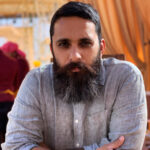
I am interested in the digital data structures that govern our world, especially in the Global South. Data is being extracted from the South by a few American corporations, with the aid of the American government, and being repurposed for financial gains. Prior to my exposure to STS, I viewed the whole operation solely through the postcolonial lens that magnified the dependency of the South on the global data structures. However, based on my current research in STS, I have realized the embedded inequalities within the technologies that enable data extraction; From hardware manufacturing to the Intellectual Property rights over the software, everything is controlled by American Corporations. With the future hinged on data, the South will remain dependent if the current data structures and technologies are not scrutinized. My research surveys the Global South, but I will be analyzing India as a case study, where I worked as a data technician for the past few years. My job was to connect the rural parts of India to the internet. In a sense, I was a facilitator of the above-mentioned data technologies. I hope to redeem myself by exposing the inequities through my insider knowledge.
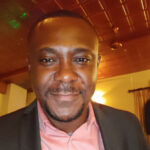
I am a practicing civil engineer with nearly 15 years of professional engineering experience in the land development industry, working on a variety of land entitlement projects undertaken under the provisions of the Ontario Planning Act – both, in the private and public sectors. I hold a Bachelor of Engineering (B.Eng) degree in civil engineering from Lakehead University (Thunder Bay, ON) and a Bachelor of Environmental Studies (B.E.S) degree from York University. I am currently enrolled in York University’s Master of Arts (MA) degree program in Science & Technology Studies (STS). My research interests focus on the socio-economic inequalities associated with smart city proposals and developments, principally in the area of privatization of public assets. This is part of a larger intellectual project that seeks to explore and formulate ways in which we could begin to make urban spaces more equitable for all.
Academic email address: lucamat1@my.yorku.ca
Twitter: @BenMateus1

Before joining STS at York as a PhD student, I received training in Philosophy, History of Sciences and History of Political Thought in China, Europe and Canada. My PhD project focuses on life sciences in 19th century France, especially materials related to the concept of vitalism. My research is largely inspired by the works of Gaston Bachelard, Georges Canguilhem, Ian Hacking, Hans-Jörg Rheinberger, Lorraine Daston, etc., i.e., I'm interested in concrete and therefore dynamic scientific practices and its operational interaction with the most fundamental scientific concepts and paradigms, the historical dimension of scientific practices receiving the primary attention. My research interests extend to the 18th and the beginning of the 20th century. Besides, in STS at York, I also benefit from constructive and critical perspectives in Science and Technology Studies, which helps me to reveal more phenomena for a project rooted in traditional Western science. Besides English-speaking academics, I keep an ongoing interest in related disciplines in the Chinese and French-speaking worlds.

I am interested in smart cities, air and atmospheres, as well as architecture. In my work, I engage with the notion of atmospheres, as both meteorological and affective, alongside architecture, in order to understand how the design of physical space matters in shaping cultural politics around environmental activism and sustainability. My goal is to trace a line between materiality, materialism and activism, in light of the engineering, conditioning and containment of different airs. I hold an MA from York’s STS program, which I completed under the supervision of Prof. Hélène Mialet, with a thesis on “How Data Matters and Comes to Have Matter”. Prior to this, I was a researcher in a technology lab which facilitated access to information for those affected by government internet censorship. I completed my undergraduate degree in Life Sciences (HBSc) at the University of Toronto, with Majors in psychology and global health, and a minor in cognitive sciences.
Email: aftabmir@yorku.ca
Twitter: @banumim
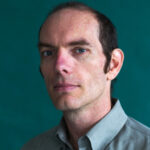
My current research builds off of the last degree I did at York University in philosophy focusing on skepticism and scientific knowledge. Whereas my previous project used Pyrrhonist Skepticism to examine definitions of scientific knowledge in the philosophy of science, I am now interested in studying the skeptical techniques employed by corporate funded think tanks and front groups—"merchants of doubt"—who seek to undermine scientists' claims about anthropogenic climate change. I shall conduct an ethnographic study of these organizations and their claims. I will look not only at current members but at those who were first convinced by these techniques, yet who later changed their minds. Then, I will carefully and critically examine the "skepticism" that these groups purport to follow.
When I'm not spending sleepless nights worrying about climate catastrophe I enjoy hiking, fostering cats, and singing at karaoke bars.

My academic background includes a Bachelor of Science degree in Criminal Justice & Criminology with a double major in Liberal Arts and a minor in Computer Crime. I completed my Master of Science degree in Information Security & Digital Forensics in 2021, where my research largely focused on the human threat to technical systems, particularly social engineering threats within the context of small to medium sized enterprises. During this time, I became both concerned and fascinated with the capacity of technology to have a profound impact on shaping society at large. My academic interests broadly include issues that pertain to the convergence of carceral technoscience, surveillance, and oppressive power structures. Currently, my research focus includes examining the role that biometric technology plays in the conception of identity whilst simultaneously assessing the emergent ethical and societal implications thereof through an Actor-network theory perspective.

The primary focus of my research is at the intersection of Architecture, Engineering, and Construction (AEC) science and technology, representations, and engagement. These include the acts and artifacts of technical drawing, design, and collaboration/argumentation. My work is also unique in that it addresses macro-scales of citizenship and public understandings, and brings pragmatism to AEC-STS research. Sports, and games are another research area of mine that provide some input into examining citizenship and engagement. For example, sport serves an important infrastructural role and acts as a political-economic barometer of sorts. Game-based or digital learning competencies are becoming more important in many structures of engagement and decision making.

Elif Memis (she/her) is an MA student in York University STS graduate program. She holds a BSc (Hons) degree in educational technology from Bogazici University in Istanbul. Her research interests center around critical technology studies, game studies, gamification in education, and learning through digital games. In particular, she is interested in how digital technologies and gamification could be integrated into education. For her master’s thesis, she is conducting research on digital games designed for civic education to examine their potential benefits on the educational level. For her research, with a focus on the gamification of civic education, she analyzes the relationship between the civic engagement of young adults and their experience in playing digital games designed for civic education.
Email: elifm@yorku.ca
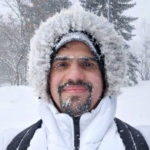
My background is in Communication Studies (BA, MFA) and Theology (BA). My research interests have navigated through the philosophy of technology, critical data studies, and technoscience over my academic career, keeping the sociopolitical implications of new information and communication technologies as the main focus. Currently, I am dialoguing with literature on research policy, AI governance, and critical studies of innovation to investigate the relationship between artificial intelligence imaginaries in policymaking and AI research at the Brazilian Institute of Data Science (BI0S).
Twitter: @guillycsilva
E-mail
ResearchGate
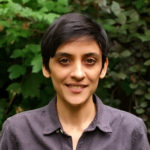
I am a doctoral student at York STS. I study history of neuroscience, ethics of neurotechnology, and neurobiological conceptions of humanness through the lens of Feminist STS and Black Studies. The focus of my PhD research is early clinical neurology in the late 19th century in the US within the racial context of post-slavery. I aim to understand the entanglements between the emergence of a field concerned with studying bodyminds and the racial shifts and continuations that worked to preserve a privileged and overrepresented category of “human,” as well as implications for contemporary ethical discourses. I received my MA from Women and Gender Studies Institute, University of Toronto, and I hold a PhD in (neuro)physics from the University of Florida. I received my BSc in physics from Sharif University of Technology, Tehran.
Funding: Canada Graduate Scholarships — Doctoral (CGS D) Award, 2024–2027

I hold a B.A Honours in Psychology from York University and several unfinished certificates from Coursera. In my work as a creative arts educator and performer, I have witnessed the therapeutic benefits of laughter in clinical and casual contexts. I am curious about the role of laughter at the intersection of science and technology, wondering where we locate laughter and joy in acts of research and practice. In my own research I focus on the embodied laughter of the clown, asking how the revolutionary potential of laughter can be harnessed in climate activism and hacktivism, and how we study laughter in AI and machine learning. I promise I won’t make too many science puns in my work, only periodically.

Jaime Babb is a PhD candidate in Science and Technology Studies at York University. Her research centres on science fiction, its relationship to theoretical physics, and what it can tell us about the epistemic conditions under which it was written. Her dissertation is focused on the concept of the multiverse, an idea that (in its present form) first emerged in the science fiction of the interwar period before entering physics in the 1950s with the “many worlds” interpretation of quantum mechanics and becoming an idiom in popular culture in the 21st century. Her work touches on questions of narratology, culture and media studies, the history and public reception of science, and the coproduction of science and the social order. She holds an MLitt in science fiction (University of Dundee, 2019), an MSc in theoretical physics (University of Victoria, 2013), and undergraduate degrees in physics and history (both awarded by the University of Winnipeg in 2010).

I completed a BSc in Electrical Engineering at Queen’s University and a MASc in Environmental Engineering and International Development at the University of Guelph, where I researched microhydro power in the context of rural Nepal. My interests include river ecosystems, water activism, the history of mills and hydropower, 19th century political history, colonialism and anti-colonial struggles. In my free time I like reading books, drinking tea, doing religious things, wandering around woodlots, and tending to a messy vegetable garden. I’m hoping to eventually work in academia or education.
Funding: Ontario Graduate Scholarship (2022–2023)
Email
Twitter: @SwetrPocketRift
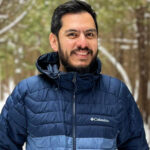
I have been involved in STS since the early 2010s when I completed an MSc in Social Studies of Science at Universidad Nacional de Colombia. My research topics in this field have been psychiatric classifications and dental training, which I addressed with ethnographic methods. My frameworks are postcolonial theory, affect theory, the ontological turn, and the sociotechnical approaches to scientific education and standards. I am currently in the MA STS program at York University, where I have been studying the entanglements between scientific visual cultures and neurosciences. In addition, I have worked as a researcher in Community Health, Social Participation in Health, Environmental Health, and forced displacement associated with sociopolitical violence. Most of my teaching and supervising experience has been in medicine, dentistry, and psychiatry. I have taught courses like Social Project, Knowledge Theory, Social Semiology, and Epistemology and History of Psychiatry in these areas.
Email: jadazac@yorku.ca

Katelyn Wan Fei Ma is a Ph.D. Candidate researching cybercrime in the Graduate Program of Science and Technology Studies at York University, and a contract teaching faculty member at Wilfrid Laurier University where she teaches topical courses related to cybercriminology. Katelyn also works for TD Bank’s North American Fraud Operations as a Manager of Strategic Initiatives, working primarily as a lead in corporate strategic planning and transformational initiatives.
Katelyn’s current research focuses on cyber financial crime assemblage and how users and misusers shape technologies and policies. She is interested in how data analytics and artificial intelligence improve cybercrime management practices, and how financial institutions respond to cybercriminal activities at both product design and institutional policy levels. Katelyn’s research strives to increase transparency and efficiency in managing cyber financial crime in Canada, and she hopes her work can contribute to cybercrime management strategies that will help build and rebuild consumer trust and confidence.

Inspired by emerging socio-technical shifts in global politics and social relationships wrought by artificial intelligence, I returned to graduate school at York to pursue an MA in STS in 2021 following a 20-year career in finance and distribution of premium film and television content. Though geographically distant from my California origins, my return to graduate school was an intellectual homecoming and a seamless continuation of my undergraduate degree in Science, Technology and Society from Stanford University (BA, 2001). Now as a PhD Candidate, my research interests cluster around artificial intelligence and related elements, and include philosophical, political, and socio-economic dimensions. My dissertation research examines the potential role of third-party liability insurance as a mechanism for standard-setting and accountability in global AI safety.
Concurrent with my studies at York, I held a one-year (April 2024 - April 2025) Science, Technology and Policy Fellowship with the Inter-American Institute for Global Change Research and also completed a 4-month long certificated program in International Science Diplomacy at the University of Nuremberg-Erlangen in January 2024. In 2023, I completed the United Nations Summer Study Program at The New School, including a practicum with Human Rights Watch in their Economic Justice division.
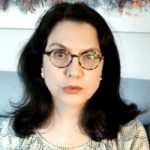
My research inscribes indigenous knowledge and knowledge from the European periphery into the early history of computation. It considers the priority dispute over the “discovery” of binary—a dispute that played out over the eighteenth, nineteenth and twentieth centuries—as an episode in the history of technology. It examines the work of the seventeenth-century Spanish philosopher Juan Caramuel Lobkowitz, who took seriously the marginalized knowledge of indigenous peoples.

I am interested in how wildlife conservation is formulated and practised in the Global South, with a particular interest in the Corbett Tiger Reserve. My research explores how local communities interact with conservation technology, and how the legacy of colonial governance affects present conservation policy, while being aware of the technological import that continues to direct conservation science in India. I am, eventually, conducting research that is assimilative of the intricate politics of conservation, and has consequences for human and animal geographies, forest governance, and the rights of local and indigenous communities that live within, and on the peripheries of, these reserves.

Before completing my BA in Communication Studies here at York, I spent two decades working with evolving web and social media technologies in both broadcast and print media, and gaming and immersive entertainment. My professional experiences inform my academic interests in critical political economy, surveillance, and material and decolonial game studies. My research involves knowledge production and loss, and the processes of professionalization, standardization, and consolidation through an examination of Dungeons & Dragons as a sociotechnical assemblage. I seek to deepen our understanding of how technologies can affect our communities and our creativity, how knowledge is produced and lost, how we contribute to these processes, and what we can do to preserve our knowledge—even if it is ‘just a game.’
Twitter, Instagram, Twitch: @noizangel
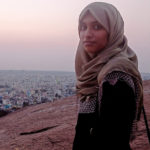
Following up a bachelor's degree in the Biological Sciences (majoring in Biotechnology and Biochemistry) with a master’s in Neural and Cognitive Sciences got me thinking about thinking of science. It seemed natural to follow up by enrolling in the master’s program offered by the STS department at York, and then even more natural to enroll in the same PhD program. Intrigued by varied fields, I have asked questions on topics like gender discrimination to vaccine hesitancy. I am interested in using a cognitive lens and my training in the biological sciences to examine the interactions and intersections between science, society, and individuals.
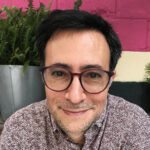
Sasha (Ph.D. candidate) arrived in Science and Technology Studies after 20 years in the software industry. He studies the value systems that software teams enact and how those systems subvert the orthodoxies of Big Tech. He is also engaged in research in online misinformation, the application of agile knowledge-production methodologies to social science, and the place of digital impersonation among other types. His academic interests include software practice under capitalism and human nature after digital technology. Sasha received his Master’s in STS from York in 2022; prior to his time in industry he pursued master’s work in multimedia art at San Jose State University, and he holds a Bachelor of Science in Civil Engineering and a Bachelor of Arts in History of Art and Architecture from Brown University.
Email: sakhavi@qoto.org
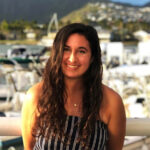
Ph.D. Science and Technology Studies
Research: My area of interests are digital games, esports, and the intersection between labour and leisure. Building on my MA thesis where I examined the video gaming habits and leisure activities of farmers and their perceptions towards farming video games, I am now interested in the Farming Simulator esports league and the individuals who participate in it. I ask what it means to play at one’s livelihood through simulation video games, how a non-competitive simulation game has gained traction in the European esports leagues, and the corporate sponsorship given to this esports league by leading agricultural organizations.
Email: skwalker@yorku.ca

I received a BA in Information and Communication Studies / Minor in Business from the University of New Brunswick, as well as an MSc from the University of Sheffield and MA in Public Administration from Queen's University. My career objective is to become faculty member, undertaking teaching, research, and academic exchange that contributes to the improvement of global science and technology.
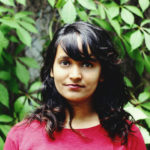
Aadita Chaudhury is a PhD candidate in the Graduate Program in Science and Technology Studies. Her dissertation project explores racial capitalism in the context of the multifaceted material-semiotic turns in the field of fire ecology, building on her ethnographic, historical, and media research on wildfire management in California and internationally. She was a virtual resident in the UNIDEE residency program in Cittadellarte – Fondazione Pistoletto in Biella, Italy, exploring visual modes of representation, embodied modes of relating and poetic form in relation to fire/combustion as a phenomenon along with arts practitioners from other disciplines. She uses her background in environmental studies, STS, political ecology, cultural studies and arts practice to understand how nature can be a felt, embodied experience through performance, visual and material expression, as a way by which to connect with more-than-human worlds, and one's internal world, in the global context of capitalism, colonialism and climate change.
Funding: Vernon Oliver Stong Scholarship in Science (2017), Ontario Graduate Scholarship (2019–2020)

My current research interests include privacy and data protection policies (North America and Europe), smart cities, and civic engagement. My PhD project is a comparative study of two smart cities: the recently cancelled Sidewalk Toronto (Canada) and the DECODE project in Barcelona (Spain). The aim of this project is to examine the policy frameworks that inform the public, private, and commons governance of personal data in smart cities. Currently, I am serving as a science advisor with the Information and Communications Technology Council of Canada (ICTC) and the CIO Strategy Council as part of the team working on the National Data Governance Standards of Canada.
Email: artanna@yorku.ca
ResearchGate: researchgate.net/profile/Anna-Artyushina-2
Twitter: @socioanna
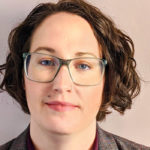
Dayna Jeffrey is a PhD candidate in Science and Technology Studies at York University in Toronto, Canada. Her dissertation focuses on how narratives of technoscientific futures configure our presents. Her particular focus is on how future expectations within transhumanism configure the current development and imaginaries of AI technologies by examining how future expectations of AI come to configure it in particular and potentially problematic ways. Dayna holds an MA in Communication and Culture from a joint program between York University and Toronto Metropolitan University and a BA (Hons) in Social Anthropology from York University.
Funding: Ontario Graduate Scholarship (2018–2021)

Building on my training in fine arts (ESAD-Strasbourg) and interdisciplinary research in Fine Arts, Critical Disability Studies, and STS (York), my research interests revolve around bodies and visual production. Previous and ongoing projects address mobilizations of disabled bodies in contemporary art and aspects of consent in research and in art production. My doctoral work is primarily concerned with the practices, pedagogy, and professionalization of medical illustrators in Canada from the 20th century to the present. I am interested in the relevance of this under-documented predominantly female profession to the production and dissemination of canonical bodies in medicine and broader culture.
Funding: SSHRC Canada Graduate Scholarship (2016-2019); AMS History of Medicine Doctoral Completion Grant (2019)

Isabella Jaimes Rodríguez is an MA student in the STS program at York University. Her research focuses on how technologies shape and reconfigure the spatial and temporal dimensions of domestic labor, particularly at the intersection of digital labor platforms, media technologies, and care work. She is especially interested in the sociotechnical spaces of domestic labor, exploring continuities and disruptions in labor practices mediated by historical and contemporary technologies through a Feminist STS lens. With a background in sociology and political science, she previously contributed to the Fairwork project, where she analyzed the implications of ride-hailing platforms on mobility and worker rights in Colombia. She is also a member of the Socio-technical Resistance and Ethical Technologies (STREET) Lab at the University of Toronto.

I hold two BA’s, one in Liberal Arts from Seneca College and my second from York specializing in Humanities. Currently I am working towards my MA in the STS Graduate Program. My education is in the Humanities tradition being taught in the Classics with a focus area from Antiquity including Sumerian texts, Presocratics and Socratic Philosophy to Medieval, Renaissance and Reformation, and Enlightenment works as well as Analytic and Continental Philosophy and Canonical works of Western Literature. I also have interests in Philology, East-Asian philosophy such as Confucianism and Daoism, and more contemporary philosophers such as Foucault, Charles Taylor, Wittgenstein. My critical eye and interest in Philology leads me to a gamut of culturally significant texts by Goethe, Cervantes, Augustine, Chekov, James Joyce, and Aldous Huxley amongst many others which I try to incorporate into my work. My research so far has focused on subjectivity, theories of the self, and ideal archetypes throughout the ages. Spanning literature from the Renaissance and the Enlightenment amongst various other eras to contemporary literature, visual arts, critical and cultural theory my work often seeks to engage questions around textuality, embodiment, technology, society, culture, and social movements. Within these queries various questions arise such as how social, economic, and cultural institutions shape and influence notions of the self. My current studies continue in these traditions looking at the relationship between Science and Religion in Nineteenth Century Britain.

I am a multidisciplinary artist and researcher with a passion for exploring the impact of digital technologies and design on society. I hold a BA in Design from Universidad de los Andes in Colombia, and a Bachelor of Information from the University of Toronto. Currently, I am pursuing a MA in STS at York University, where I am researching the intersection of digital privacy, children's digital rights, and educational materials. My experience as a UX/UI designer has led me to work with various organizations focused on digital rights, giving me a unique perspective on issues of privacy and surveillance. I’m also an illustrator, you can find my work in public spaces throughout Toronto, as well as in literature magazines and educational campaigns.
academic email address: mdiaz92@yorku.ca
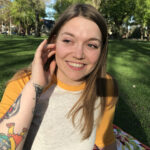
My research focusses on contemporary clinical systems designed to enhance care for individuals living with chronic pain. These include screen-based electronic symptom reporting technologies such as mobile health applications, virtual reality headset devices, and other visual-technological programs designed for pain management. My work explores the values and care politics built into these systems. I fuse insights from the field of STS, the phenomenology of illness, and ethnographic field work to study 1) the experience of living in pain, and 2) biotechnologies of pain expression in the clinical encounter. I received my master's degree in philosophy at Toronto Metropolitan University in 2018. My MA in philosophy culminated with a study of differentiating phenomenological approaches to the problem of other minds (i.e. how we come to know that there is another mind in the first place, and whether or not, and to what extent, it differs from that of the perceiver). I am a SSHRC doctoral award recipient, and my work has been published in Multimodality & Society, Catalyst, and Science as Culture.
Academia: yorku.academia.edu/MichelleCharette
Twitter: @michgenevievec
Funding: Mitacs, SSHRC Doctoral Award

My research interests are varied; I have a background researching the history of medicine, social history, the medical humanities more broadly, and practicing and writing in the scholarship of teaching and learning. In particular, I am interested in critical pedagogy and the practice of students as partners, especially as it relates to social change and equity. I have editorial experience as co-editor and then Editorial Manager for The International Journal for Students as Partners (IJSaP). As a graduate student in Science and Technology Studies, I am exploring equity in medicine, and the ethics and politics of medicine as it interacts with modern technology (particularly how big data and the algorithmic Internet impact the dissemination and public reception of scientific knowledge). I am also interested in how technological innovations such as the algorithmic Internet or machine learning interact with our social and political world.
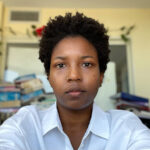
I am a Jamaican Canadian student who is passionate about solutions toward empowering Health and the Environment. Particularly as it relates to small island developing states. I began my journey in Jamaica as a science student at The Immaculate Conception High School, being exposed to mathematics, biology, physics and chemistry. I subsequently emigrated to Canada, where I completed my high school education and completed a BA in Health and Society & Environmental Studies.
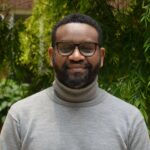
Dr. Hassan is an Illinois Distinguished Fellow at the School of Information Sciences and Faculty Affiliate with the Center for African Studies at the University of Illinois Urbana-Champaign. His research examines the relation between race, digital technology, and technoscientific capitalism. Dr. Hassan’s work is at the intersection of technology and public policy focusing on racial justice and the social, economic, and political implications of emerging technologies including artificial intelligence (AI) and data. His most recent project investigates the sociotechnical knowledge production practices of the state, scientists, and the tech industry examining the development of AI and its innovation ecosystem across multiple African countries.
Dr. Hassan was a Research Fellow at the Harvard Kennedy School. He is the recipient of several awards including the Provost Dissertation Scholarship, Carswell Scholars Award, Michael Smith Foreign Study and Joseph-Armand Bombardier Doctoral Scholarship from the Social Sciences and Humanities Research Council of Canada. Dr. Hassan received his PhD in science and technology studies from York University. He holds MEng in engineering entrepreneurship and innovation from McMaster University, MA in science and technology studies from York University, and BSc in electrical engineering from the University of Khartoum.

Learn More
The Graduate Program in Science & Technology Studies at York is an exciting environment to pursue innovative, socially engaging, career-ready education. Contact our Graduate Program Assistant to learn more.
